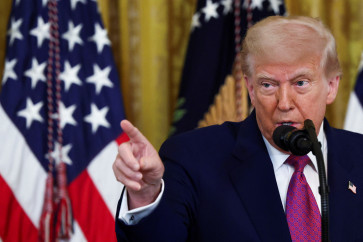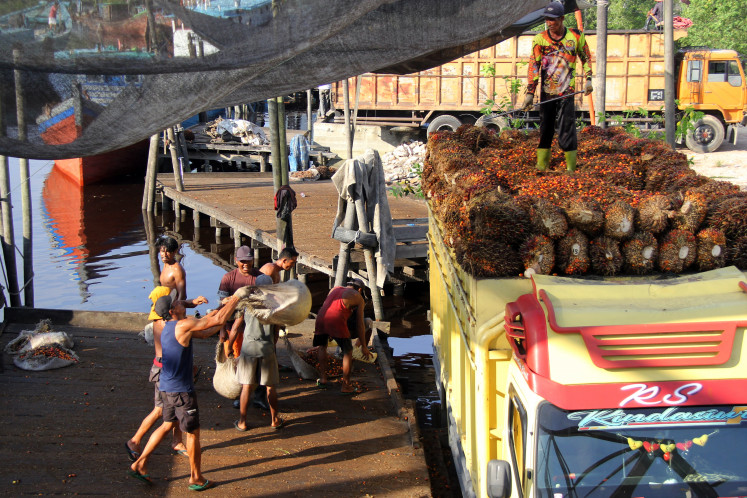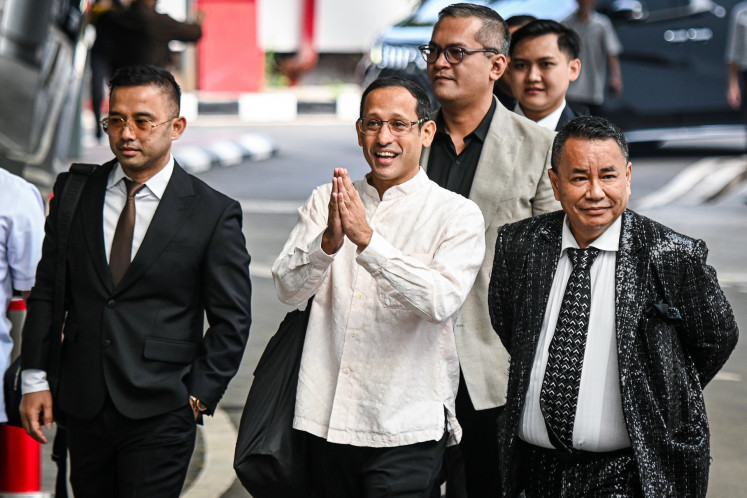Popular Reads
Top Results
Can't find what you're looking for?
View all search resultsPopular Reads
Top Results
Can't find what you're looking for?
View all search resultsNigeria wants to shake off local drug stigma
Indonesia’s extensive campaign on the death penalty for serious drug offenses under President Joko “Jokowi” Widodo has brought frustration to the origin countries of foreign death row inmates
Change text size
Gift Premium Articles
to Anyone
I
ndonesia’s extensive campaign on the death penalty for serious drug offenses under President Joko “Jokowi” Widodo has brought frustration to the origin countries of foreign death row inmates. In light of this, Nigeria has set out to change its narcotics-tainted image in Indonesia.
The West African country has taken notice of the fact that Indonesia has executed six of its citizens since Jokowi took office in 2014, with at least one Nigerian being killed in each of the three rounds of executions in that time.
Nigerian National Drug Law Enforcement Agency (NDLEA) chair Muhammad Mustapha Abdallah stressed the misperception of Nigerians in Indonesia in relation to drugs, saying that a small number of cases had led people to wrongly generalize about the sizeable Nigerian community in the country, where an estimated 1,000 of its citizens reside.
During a recent inaugural agency visit to Jakarta, Abdallah met with his Indonesian counterpart, National Narcotics Agency (BNN) chief Comr. Gen. Budi Waseso, in a bid to boost cooperation between the two agencies, especially expanding intelligence sharing to prevent potential drug smuggling from Nigeria. An existing cooperation agreement allows NDLEA to provide background checks on Nigerians applying to travel to Indonesia.
Abdallah further noted that closer cooperation was being arranged between NDLEA and the embassy in reaching out to the Nigerian community in Indonesia to caution them against any involvement with illicit drugs.
“We are here to see Nigerians, especially those not on death row, to impact upon them the need to stay on the correct side of the law,” Abdallah told The Jakarta Post during an interview at the Nigerian Embassy in Jakarta recently.
Like Indonesia, he said, Nigeria has a “no compromise” stance on drugs, although the country abolished the death penalty for drug offenses in 1987. However, it still applies capital punishment for other crimes, including murder and robbery.
According to recent data from the Nigerian Embassy in Jakarta, a total of 121 Nigerians are currently in prison for various drug related offenses, 13 of whom are currently on death row.
In July, last year, two Nigerian drug convicts were executed by firing squad, namely Michael Titus Igweh and Humphrey Ejike a.k.a Doctor, while the execution for the third death-row convict, Eugene Ape was postponed.
Nigerian Community in Indonesia (NCII) chairman Kalu J. Okafor said the drug cases had cast a negative light on the entire Nigerian community, most of whom work in Indonesia as traders, as well as a handful of students pursuing higher education.
While expressing regret over the cases that had resulted in a guilty verdict, Okafor at the same time called for closer cooperation with authorities to ensure fair trials and fight the common enemy in the war on drugs.
“We wish Indonesian law enforcement agencies would interact more with the Nigerian community in this important war against illegal drugs and other areas of importance,” Okafor told the Post.
Separately, Institute for Criminal Justice Reform (ICJR) executive director Supriyadi Widodo Eddyono, citing a 2016 report published by his organization, said that stereotypes in the judicial system led to unfair trials, especially in death penalty cases involving foreigners from certain countries of origin.
“Fair trial standards, especially in death penalty cases, must be upheld as highly as possible regardless of where the foreigner is from,” Supriyadi told the Post.
Earlier BNN announced that among foreign nationals suspected of drug crimes, Nigerians were one of the largest groups, with 12 people from a total of 28 suspects in 2015, followed by China and Hong Kong with 8 people and Taiwan with 2 people.
Meanwhile, BNN data published at the end of 2014 showed that Nigeria had tied with Malaysia in terms of the number of their citizens convicted of the death penalty over drug offenses that year, with six people from each country sentenced. They were among 37 foreigners on death row from that year’s total of 64 people.










